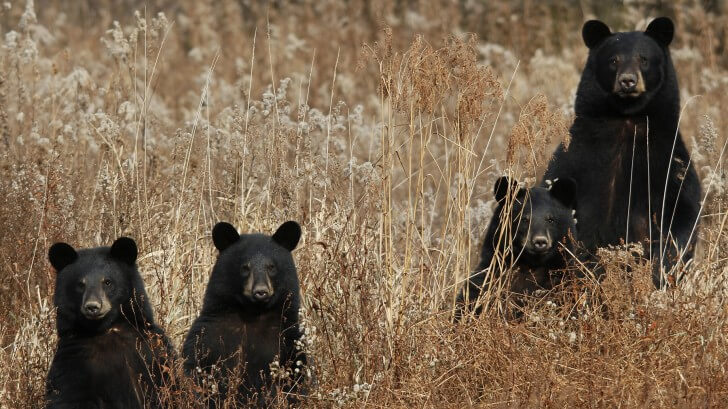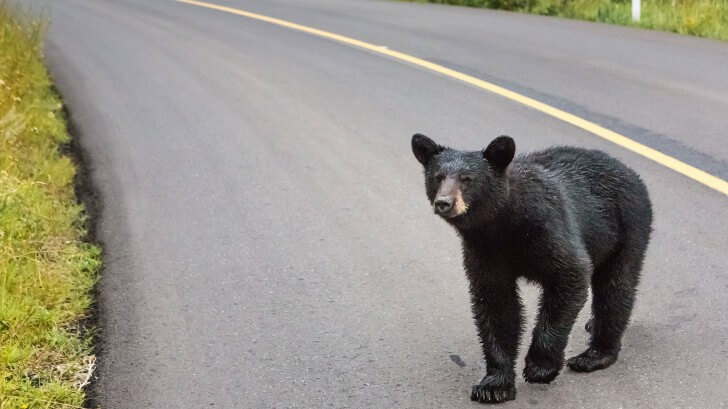

BBC Earth Podcast
Close your eyes and open your ears
Intimate stories and surprising truths about nature, science and the human experience in a podcast the size of the planet.
Animals
How do you fancy living with Paddington? Sounds endearing?
The reality of having a bear at close quarters is rather more intimidating, as 95 year old Anna Stady from Vancouver Island discovered. As a former cook in logging camps she’d encountered bears before, so when she discovered a black bear rooting about in her home for food she simply shooed him off. He returned, still keen to finish his picnic, and BC Conservation Officers Service set up a trap for him. He hasn’t been back since, to Anna’s relief, as she doesn’t want him killed.
It’s not uncommon for black bears and grizzlies in the US and Canada to scavenge through bins and make their dens under houses. In response, educational programmes are run to make families “bear-smart”; disposing of rubbish in locked bins and not encouraging bears so bears and humans can live in happy harmony. Bears come off worse in their interactions with humans, although there have been rare human fatalities - one 10 year study showed that of some 150 urban bears in the US, all were killed by people.
Jack Clement and Dayna Feist-Clement of Asheville, North Carolina, had their bird feeder regularly raided by a young black bear, who Jack named Bruno, in 2009. Bruno was succeeded by Thistle, a female with cubs, who took over Bruno’s den under their fence. The cubs kept Jack and Dayna entertained by falling out of trees and playing in their walnut tree.

William Withers and his family on their Ashville smallholding can feel as if they’re in a running battle with their hairy neighbours. 50 of the Withers’ chickens have been taken by bears in the last year, the bears open the family’s car doors looking for snacks, and William had to chase a large bear off his porch which had been attracted by the smell of dog food. The visitor was persistent and William finished up throwing a stick at him to frighten him away, and then fired up his chainsaw to keep him off. “We keep air horns and pepper spray handy at all times,” says William. “This is the type of bear that we worry about. He did not have much fear even when I jumped at him. Bears that have lost their instinctive fear can become aggressive.” While the relationship may sound contentious, William, among other residents of Ashville, loves his hairy neighbours, “You’d think they would be a matted, greasy animal, but they are fluffy and clean and wild.” Residents feel a huge sense of responsibility for the bears and maintaining distance between landowners and wild bears takes priority for the welfare of the bears.

Also feeling that sense of responsibility is Jack. He is convinced that humans need to respect the bears as the consequences could be dire. For example, in Asheville motorists will stop and watch the bears ambling alongside the road which means they lose their fear of cars and are frequently in collisions. “They are here to stay and we need to educate ourselves on proper behaviour”, he says. “If we don’t get this right, bad things can happen to us and the bears too will suffer as a result.”
And his advice if a bear comes calling? Scare them away by yelling, banging pots together or using an air horn. And absolutely, definitely no marmalade sandwiches.
Featured image © Lynn Bystrom | Getty


Intimate stories and surprising truths about nature, science and the human experience in a podcast the size of the planet.